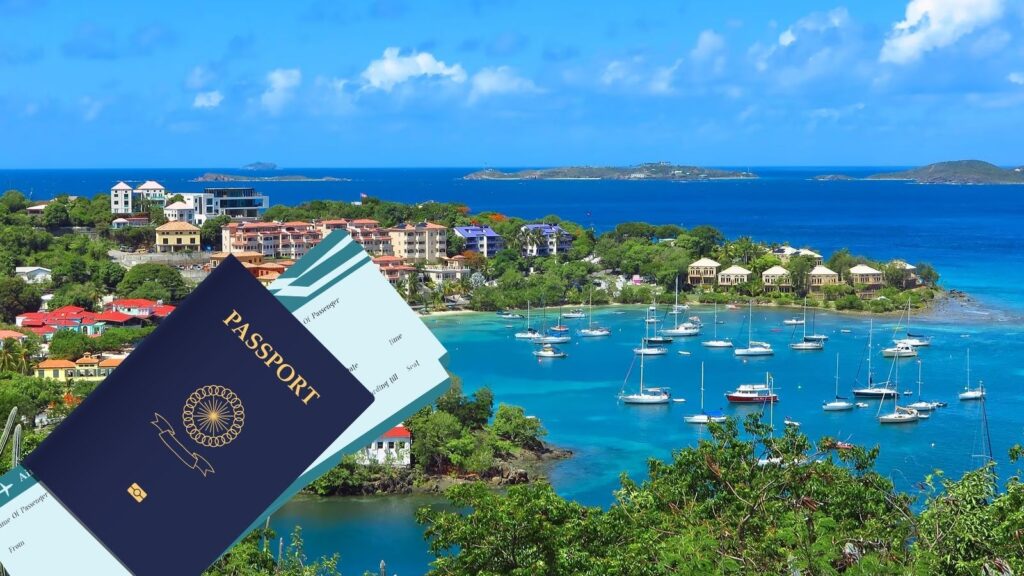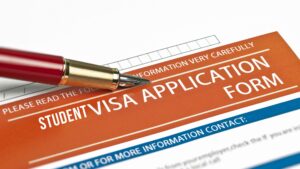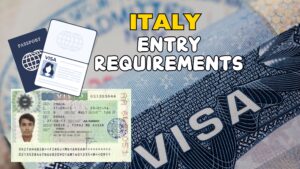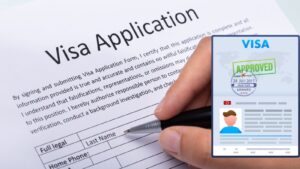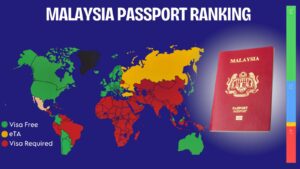Each year, thousands of U.S. citizens plan vacations to the Caribbean, with the Virgin Islands topping the list for their pristine beaches, crystal-clear waters, and tropical atmosphere. One of the most commonly asked questions by U.S. travelers is: Do US citizens need a passport for the Virgin Islands?
How to Legally Move to the US Virgin Islands Without Changing Citizenship
The answer is not as straightforward as it seems because the Virgin Islands include both U.S. territories and British overseas territories. Knowing the difference between them—and understanding where a passport is and isn’t required—is essential for smooth and stress-free travel.
Here get to know everything about passport for Virgin Islands travel, whether you’re flying to St. Thomas or taking a day trip to Tortola.
U.S. Virgin Islands vs. British Virgin Islands: Know the Difference
Understanding the difference between the U.S. Virgin Islands and the British Virgin Islands is essential before you pack your bags or book your flight. Although many people casually refer to them together as “the Virgin Islands,” these two destinations belong to entirely separate jurisdictions and follow different travel regulations—especially when it comes to passports.
U.S. Virgin Islands: An American Territory
The U.S. Virgin Islands (USVI) include St. Thomas, St. John, and St. Croix, along with several smaller islets such as Water Island. The U.S. governs these islands as unincorporated territories, meaning you travel to them just as you would to Hawaii or Puerto Rico. If you’re a U.S. citizen, you do not need a passport to enter the USVI. Your government-issued photo ID, such as a driver’s license, is usually sufficient for entry.
Because the U.S. considers travel to the USVI domestic, you can expect a seamless travel experience without customs checks or immigration processing, as long as you’re flying directly from the U.S. mainland or other U.S. territories.
British Virgin Islands: A Foreign Country for U.S. Travelers
On the other hand, the British Virgin Islands (BVI) fall under the sovereignty of the United Kingdom. This overseas territory includes Tortola, Virgin Gorda, Anegada, and Jost Van Dyke, among other islands. When you visit the BVI, the local government treats you as an international visitor, even if you just came from the neighboring USVI.
Living Tax-Free in the US Virgin Islands: What They Don’t Tell You About Act 60
As a U.S. citizen, you must present a valid passport to enter the BVI. The British authorities enforce strict immigration policies. If you show up without proper documentation, you risk being denied entry, fined, or forced to return to your point of origin.
Proximity Can Be Misleading
Many tourists plan to island-hop between the USVI and BVI, thanks to their close geographical location—often just a 30- to 45-minute boat ride apart. However, don’t let the short distance fool you. Crossing this border still counts as international travel, and both governments require proper documents.
For example, if you arrive in St. Thomas (USVI) and then decide to take a ferry to Tortola (BVI), you will go through passport and customs checks. The ferry operators often remind travelers of this requirement, but it’s ultimately your responsibility to carry the correct paperwork.
Though both island groups share turquoise waters and Caribbean charm, the U.S. Virgin Islands and the British Virgin Islands follow different travel rules. U.S. citizens can visit the USVI without a passport, but they must carry one to enter the BVI.
Before finalizing your travel plans, always verify passport requirements for each leg of your journey. The last thing you want is to stand at the dock in your beachwear, only to find you can’t board because you forgot your passport.
Traveling to the U.S. Virgin Islands: No Passport Needed for U.S. Citizens
One of the most attractive aspects of visiting the U.S. Virgin Islands is that U.S. citizens do not need a passport to travel there. Since these islands are under U.S. jurisdiction, traveling to them from the continental U.S. is treated exactly like domestic travel. There are no customs checkpoints or immigration stations upon arrival for U.S. travelers.
What you do need, however, is a valid government-issued ID. Acceptable forms of identification include:
- A REAL ID-compliant U.S. driver’s license
- A state-issued photo ID
- A U.S. military identification card
- For minors, a birth certificate or school ID, depending on age and airline policy
Though no passport is required, travelers must note that the U.S. Virgin Islands fall outside the U.S. customs zone, which means that upon departure, you will be required to undergo a U.S. Customs and Border Protection (CBP) check and declare any goods or items you’re bringing back. This process is routine but can catch first-time travelers off guard.
Despite this minor checkpoint, visiting the USVI remains one of the easiest tropical getaways for Americans because of the absence of passport requirements and frequent direct flights from major U.S. cities.
When Do U.S. Citizens Need a Passport in the Virgin Islands?
Although you don’t need a passport for the U.S. Virgin Islands, that changes the moment you decide to visit the British Virgin Islands. Many travelers mistakenly assume that short trips or excursions to the BVI from the USVI won’t require a passport. However, because you are crossing into a foreign jurisdiction, even a one-hour ferry ride to Tortola is considered international travel.
If plan to visit any part of the BVI, whether by ferry, private yacht, or cruise ship, you will be required to present a valid U.S. passport book at immigration checkpoints. Border officials will check, scan, and stamp your passport upon both entry and exit.
In addition to your passport, you may also be required to provide:
- Proof of return or onward travel, such as ferry tickets or cruise documents
- Documentation of accommodations or a day trip itinerary
- A valid visa, if your stay extends beyond 30 days (though this is rare for tourists)
Failure to carry your passport could result in being denied entry or being unable to return to the U.S. without major delays. Therefore, it’s crucial to remember that any excursion outside the USVI requires complete documentation.
Flying to the U.S. Virgin Islands: ID Requirements You Must Know
Even though the USVI is a domestic destination for Americans, air travel still requires standard forms of identification. As of the REAL ID enforcement deadline on May 7, 2025, all travelers over the age of 18 will need to present a REAL ID-compliant form of identification to board domestic flights, including those heading to the Virgin Islands.
If you do not have a REAL ID driver’s license, you will need to use one of the following:
- A valid U.S. passport
- A DHS Trusted Traveler Card (such as Global Entry or NEXUS)
- A Permanent Resident Card
- A U.S. military ID
Failure to comply with the REAL ID requirement could result in being denied boarding at your departure airport. It’s strongly recommended that you check the compliance status of your ID well in advance and, if necessary, upgrade to a REAL ID to ensure a smooth travel experience.
Cruising Through the Virgin Islands: Passport Rules for U.S. Cruise Travelers
Cruise vacations offer another popular way to experience the Virgin Islands, but passport rules differ depending on the cruise type and destination ports. For closed-loop cruises—those that begin and end at the same U.S. port—U.S. citizens are often allowed to travel with just a birth certificate and a government-issued photo ID.
This exception only applies if the cruise does not stop at international ports. If your cruise ship visits the British Virgin Islands, a valid U.S. passport book is mandatory to disembark at those ports.
Many cruise lines strongly recommend that all passengers carry a passport regardless of destination, as it:
- Ensures reentry into the U.S. in emergencies
- Allows flexible disembarkation in foreign ports
- Prevents delays due to unforeseen changes in itinerary
If you’re cruising through the Virgin Islands, always review the documentation requirements provided by your cruise line before departure.
How to Prepare for Virgin Islands Travel: Documents Checklist for U.S. Citizens
Here is a simple yet comprehensive travel checklist for U.S. citizens heading to the Virgin Islands:
For U.S. Virgin Islands Only:
- REAL ID-compliant driver’s license or U.S. government ID
- No passport needed
- Birth certificate for minors
For British Virgin Islands (BVI):
- Valid U.S. passport book (not passport card)
- Ferry or flight itinerary
- Notarized parental consent for minors if applicable
For Cruise Travelers:
- Closed-loop cruise: birth certificate + ID may be accepted
- Cruise with international ports: valid passport required
- Always carry a passport for emergencies
By checking off these requirements before your trip, you’ll avoid border delays, documentation issues, and unnecessary stress.
FAQs
1. Do U.S. citizens need a passport for the Virgin Islands?
U.S. citizens do not need a passport to visit the U.S. Virgin Islands (USVI), which include St. Thomas, St. John, and St. Croix, because these islands are U.S. territories. However, if you plan to visit the British Virgin Islands (BVI)—such as Tortola, Virgin Gorda, or Jost Van Dyke—you are crossing into an international destination and will need a valid U.S. passport book for entry.
2. Is a driver’s license enough to travel to the U.S. Virgin Islands?
Yes, for U.S. citizens, a state-issued driver’s license is sufficient when flying or sailing to the U.S. Virgin Islands, as long as it is REAL ID-compliant (especially after May 7, 2025). No passport is necessary if you’re not leaving U.S. jurisdiction. However, a driver’s license is not accepted for entry into the British Virgin Islands.
3. Can I use a passport card to visit the Virgin Islands?
A passport card can only be used for land and sea travel to neighboring Caribbean countries, and some ferry operators from the USVI to the BVI may accept it. However, it cannot be used for air travel to or from the British Virgin Islands. For full flexibility and acceptance, especially in emergencies, the passport book is highly recommended over the card.
4. What documents do children need to travel to the Virgin Islands?
For travel to the U.S. Virgin Islands, children under 18 typically do not need a passport. A birth certificate or school ID is often enough, depending on airline policy. However, if traveling to the British Virgin Islands, minors of any age must have a valid passport book. If traveling with one parent or a guardian, a notarized letter of consent from the non-traveling parent is also advised.
5. Do I need a passport to take a cruise to the Virgin Islands?
For closed-loop cruises (those that start and end at the same U.S. port), a passport may not be required if your stops are only within the U.S. and territories like the USVI. But if your cruise includes a stop in the British Virgin Islands, then you’ll need a valid U.S. passport book. Cruise lines often recommend bringing a passport even when it’s not technically required to ensure you’re covered for emergencies or itinerary changes.
6. What happens if I go to the BVI without a passport?
If you attempt to enter the British Virgin Islands without a valid passport, you will likely be denied entry by immigration officials. You may be turned around at the ferry terminal or prevented from disembarking a cruise ship. This can lead to travel delays, lost money on tickets or tours, and a disrupted vacation. Always carry a valid passport when leaving U.S. territory.
7. Do I need a passport for a day trip to the British Virgin Islands?
Yes, even for a short day trip or ferry ride to the BVI, U.S. citizens must have a valid passport book. Entry into the BVI, regardless of duration, is considered international travel. You will go through immigration and customs, and your passport will be stamped. Not having a passport will result in being denied entry.
8. Are there customs checks when returning from the U.S. Virgin Islands?
Yes, although the U.S. Virgin Islands are U.S. territory, they are outside the U.S. customs territory. Upon returning to the mainland U.S., travelers must go through U.S. Customs and Border Protection (CBP) and complete a customs declaration form. This process is usually quick but required for all returning passengers—even though no passport is needed.
9. Is a REAL ID enough to fly to the Virgin Islands?
A REAL ID-compliant driver’s license or state ID is sufficient for domestic air travel, including flights to the U.S. Virgin Islands, as of the enforcement date (currently set for May 7, 2025). If your ID is not REAL ID-compliant, you will need to use a U.S. passport or another TSA-approved form of identification to board your flight.
10. What’s the best form of ID for all Virgin Islands travel?
The U.S. passport book is the most reliable and versatile form of identification for all types of Virgin Islands travel. It allows unrestricted travel to both the U.S. Virgin Islands and the British Virgin Islands, covers you in emergencies, and meets air, land, and sea travel requirements. While it’s not required for the USVI, carrying it ensures you’re fully prepared if your travel plans change or extend to international territory.
